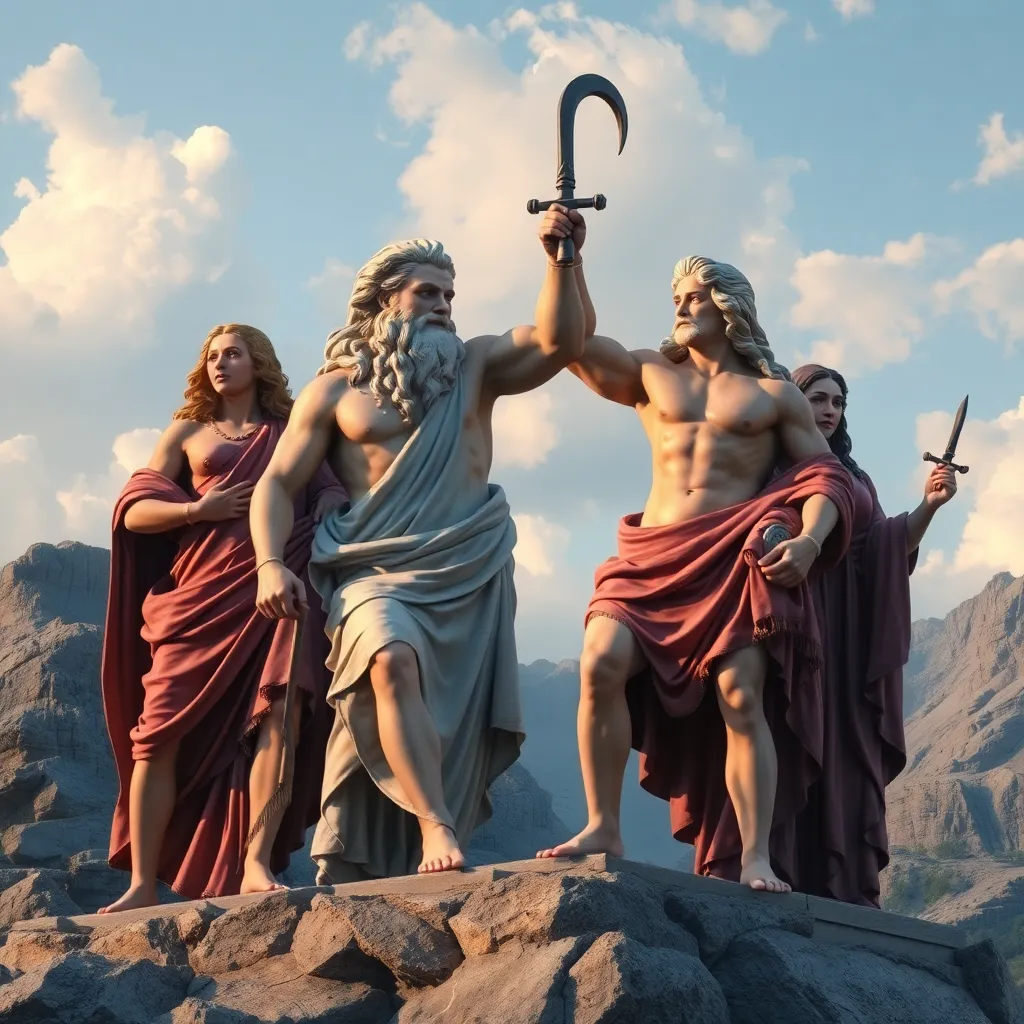Heracles and the Gods: His Relationships with Zeus, Hera, and Others
I. Introduction
Heracles, known as Hercules in Roman mythology, is one of the most celebrated heroes of Greek mythology. His tales of strength, bravery, and adventures have captivated audiences for centuries. However, what makes Heracles’ story compelling is not just his feats but also his complex relationships with the gods. These divine interactions shaped his destiny and influenced his character throughout his life.
This article explores the intricate relationships Heracles had with various gods, particularly Zeus, Hera, and others. Understanding these connections is crucial for comprehending the greater narrative of Heracles’ life and the themes of divinity and humanity that pervade his story.
II. Heracles: The Son of Zeus
Heracles’ parentage is significant in Greek mythology, as he is the son of Zeus, the king of the gods. This lineage grants him immense potential and strength but also places him in the center of divine conflict.
Zeus plays a pivotal role in Heracles’ life, often intervening to assist him in his trials. Despite his divine heritage, Heracles faces numerous challenges, many of which are orchestrated by the jealous Hera. This duality of being both a god and a mortal demigod creates a fascinating tension in his character.
Heracles embodies the struggle between human flaws and divine potential, making him a relatable and enduring figure in mythology.
III. Hera: The Envious Goddess
Hera, the queen of the gods, is infamous for her jealousy, particularly towards Heracles, whom she sees as a reminder of Zeus’s infidelity. This enmity manifests in various ways throughout Heracles’ life.
- The Attempted Murder: Hera sent two serpents to kill the infant Heracles in his crib, but he famously strangled them both.
- The Madness: In a fit of jealousy, Hera caused Heracles to go mad, leading him to kill his own wife and children. This tragic event set him on a path of penance.
- The Twelve Labors: Hera instigated the Twelve Labors of Heracles, imposing upon him a series of impossible tasks as punishment.
This theme of divine conflict is prevalent in Heracles’ life, showcasing the struggle between his heroic nature and the challenges posed by the divine realm.
IV. Athena: The Supportive Ally
In contrast to Hera, Athena, the goddess of wisdom and war, serves as a protective ally to Heracles. She recognizes his potential and often aids him in his quests.
- Assistance in Battles: Athena provided Heracles with guidance and support during his battles, including the fight against the Nemean Lion.
- Gift of Armor: She is said to have gifted Heracles a special armor that protected him during his adventures.
- Strategic Counsel: Athena often advised Heracles on the best strategies to overcome his foes, demonstrating her role as a guardian figure.
The relationship between Athena and Heracles is one of mutual respect, showcasing how divine support can empower mortals in their struggles.
V. Other Olympian Gods and Goddesses
Beyond Zeus and Hera, Heracles interacted with several other Olympian gods who influenced his journey.
A. Poseidon: Influence and Interactions
Poseidon, the god of the sea, had a complex relationship with Heracles. Although not directly antagonistic, Poseidon’s domain often presented challenges for the hero during his adventures.
B. Apollo: Rivalry and Friendship
Heracles shared a rivalry with Apollo, particularly over the Delphic Oracle. However, they also had moments of camaraderie, showcasing the dual nature of their relationship.
C. Ares: The Warrior Aspect of Heracles
Ares, the god of war, represents the warrior aspect of Heracles. Their interactions emphasize the martial prowess of Heracles as he faced various foes throughout his journeys.
VI. The Role of Fate and Prophecy
The Fates, the three primordial goddesses of destiny, play a crucial role in Heracles’ life. Their influence often manifests in prophecies that foreshadow his trials and tribulations.
- Prophecy of Greatness: It was foretold that Heracles would achieve great deeds but at a high cost.
- Interplay of Fate and Choice: While Heracles’ fate is predetermined, his choices often shaped the outcomes of his adventures.
- Acceptance of Destiny: Ultimately, Heracles learns to accept his fate, which leads to his redemption.
This interplay between divine will and personal choice highlights the complexities of Heracles’ character and the themes of fate in Greek mythology.
VII. Heracles’ Redemption and Apotheosis
Heracles’ trials and labors serve as a path to redemption. Each labor exposes him to incredible challenges but also leads to personal growth and transformation.
- Trials as a Means of Growth: The Twelve Labors force Heracles to confront his inner demons and the consequences of his past actions.
- Divine Assistance: Throughout these trials, various gods, including Athena and Zeus, aid him, signifying the importance of divine relationships in his journey.
- Apotheosis: Upon his death, Heracles is granted immortality and welcomed among the gods, symbolizing his ultimate redemption and acceptance.
This transformation from a tragic hero burdened by his past to a revered god exemplifies the overarching narrative of redemption in Greek mythology.
VIII. Conclusion
Heracles’ relationships with the gods are a central aspect of his mythological narrative, shaping his character and destiny. From the jealousy of Hera to the support of Athena, each divine interaction highlights the complexities of his journey.
The legacy of Heracles endures in mythology, serving as a testament to the themes of divinity and humanity. His story reflects the struggles of man against both celestial and personal foes, ultimately culminating in a narrative of redemption that resonates through the ages.




